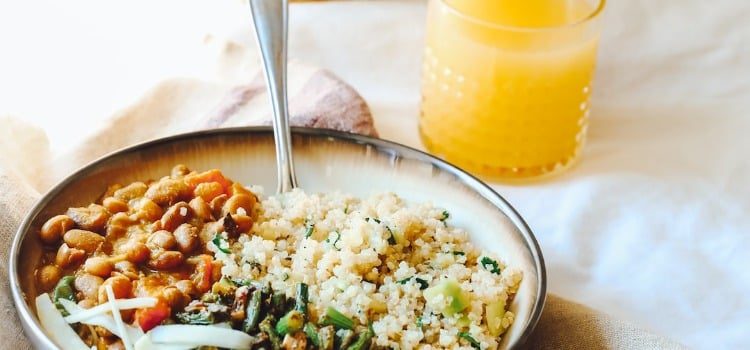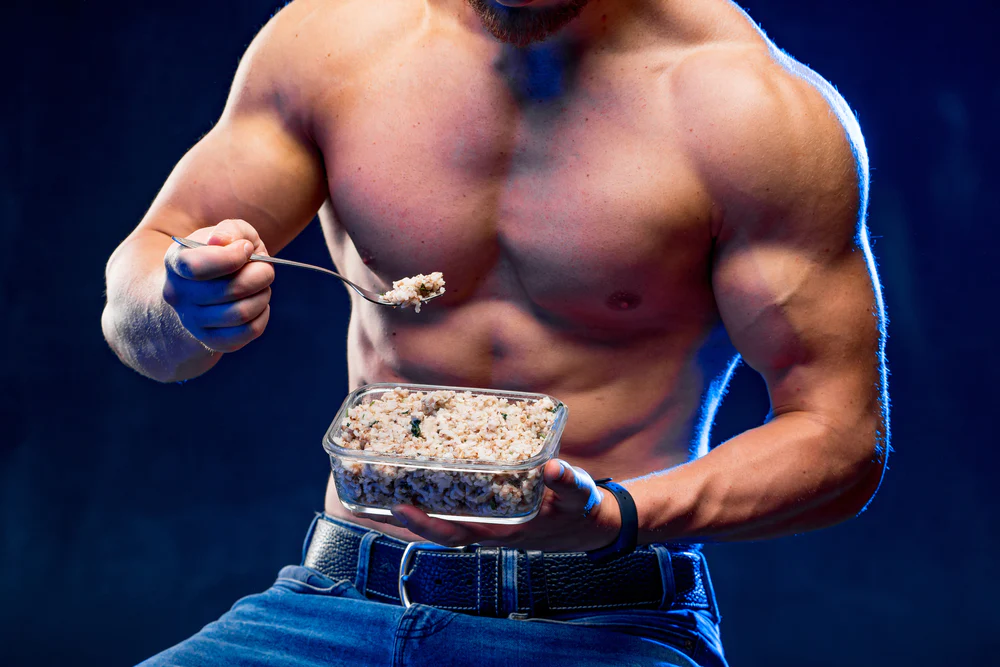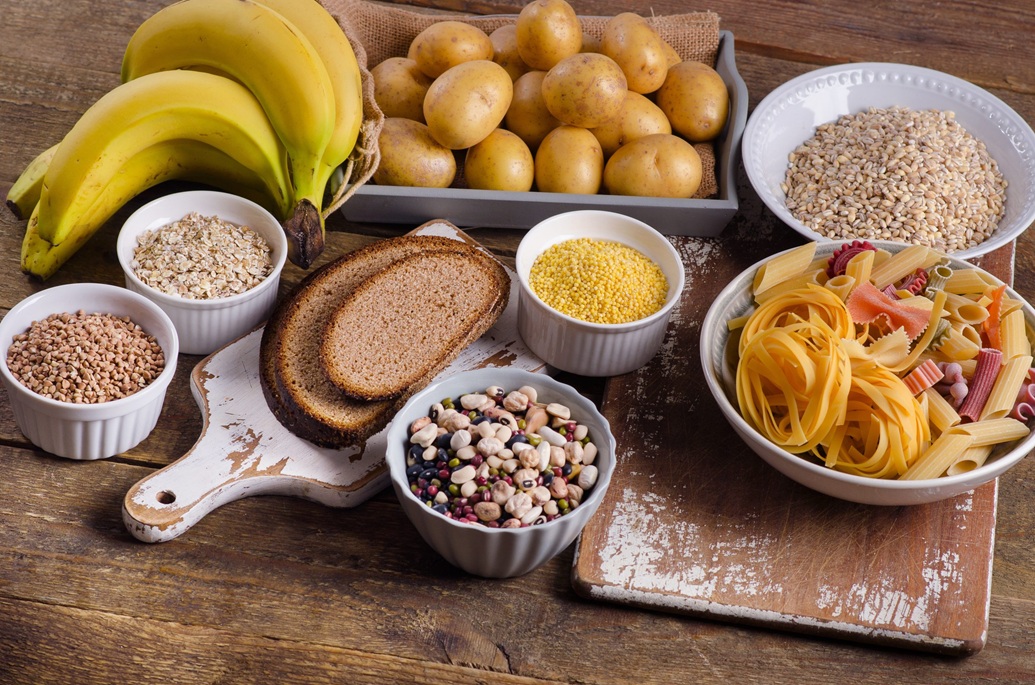Quinoa and Muscle Building
In the world of fitness and muscle building, nutrition plays a crucial role in determining success. The quality of the food consumed directly impacts muscle growth, recovery, and overall performance.
Among the many foods recommended for those looking to gain muscle, quinoa has been widely praised for its nutritional benefits. Often referred to as a “superfood,” quinoa is a versatile grain that provides essential macronutrients and micronutrients.
But how effective is it for muscle building? Is it better than rice for this purpose? Can it serve as a protein replacement? And does it truly deserve its “superfood” status? Let’s delve deeper into the science behind quinoa and its impact on muscle growth.

Quinoa as a Muscle-Building Food
To build muscle, an individual must consume a diet rich in protein, carbohydrates, and healthy fats, alongside essential vitamins and minerals. Protein, in particular, is critical for muscle repair and growth, while carbohydrates provide the energy necessary for intense workouts.
Quinoa stands out as a unique grain because it contains all nine essential amino acids, making it a complete protein source. Many plant-based foods lack one or more essential amino acids, but quinoa provides a well-balanced profile of these crucial building blocks.
With approximately 8 grams of protein per cooked cup, quinoa may not be as protein-dense as animal sources like chicken or fish, but it is still an excellent addition to a muscle-building diet, especially for vegetarians and vegans.
Additionally, quinoa is rich in complex carbohydrates, supplying a steady release of energy that can fuel workouts and support recovery.
Unlike refined grains, quinoa has a lower glycemic index, meaning it provides a more sustained energy release, reducing blood sugar spikes that can lead to energy crashes.
Quinoa vs. Rice for Muscle Growth
Rice, particularly brown rice, is a staple food for many athletes and bodybuilders due to its high carbohydrate content, which is essential for replenishing glycogen stores after workouts. However, when comparing quinoa to rice, several factors make quinoa a superior choice for muscle building:
Protein Content: A single cup of cooked quinoa contains about 8 grams of protein, whereas brown rice provides only about 5 grams per cup. White rice has even less protein. Since protein is essential for muscle synthesis, quinoa offers an advantage in this regard.
Complete Amino Acid Profile: Brown rice lacks lysine, one of the essential amino acids, making its protein less complete than quinoa’s. While brown rice can still contribute to muscle-building, pairing it with complementary protein sources is necessary to achieve a balanced amino acid intake.
Micronutrient Density: Quinoa is rich in important micronutrients such as magnesium, iron, and zinc, which play key roles in muscle function and recovery.
Magnesium helps with muscle relaxation and prevents cramps, iron is essential for oxygen transport in the blood, and zinc supports protein synthesis and immune function.
Brown rice, while nutritious, does not offer the same range of vitamins and minerals in similar quantities.
Fiber Content: Quinoa contains more fiber than both white and brown rice, promoting better digestion and gut health. A healthy digestive system is vital for nutrient absorption, which is crucial for muscle growth.
Despite quinoa’s advantages, brown rice is still a viable carbohydrate source for bodybuilders.
It is more widely available, generally more affordable, and has a neutral taste that pairs well with a variety of meals. However, for those looking for a more nutrient-dense option, quinoa is the better choice.
Can Quinoa Replace Other Protein Sources?
While quinoa is an excellent plant-based protein source, it is not necessarily a complete replacement for all other protein-rich foods.
Animal proteins such as chicken, fish, and eggs contain significantly higher protein concentrations per serving, making them more efficient for muscle growth when consumed in appropriate amounts.
However, for those following vegetarian or vegan diets, quinoa can be a valuable staple in achieving protein goals.
Combining quinoa with other plant-based proteins, such as beans, lentils, tofu, or nuts, can enhance total protein intake and further improve amino acid diversity.
For instance, a meal containing quinoa and black beans provides a substantial amount of protein while also supplying fiber and essential vitamins.
Additionally, quinoa can be incorporated into smoothies, salads, soups, or even energy bars, making it a convenient protein source for those with active lifestyles.
While it may not replace higher-protein foods entirely, it serves as an excellent supplemental protein source in a well-balanced diet.
Is Quinoa Truly a Superfood?
The term “superfood” is often used to describe nutrient-dense foods that provide multiple health benefits. While there is no strict scientific definition of a superfood, quinoa meets many criteria that justify this label.
High Nutrient Density: Quinoa is packed with essential nutrients, including protein, fiber, iron, magnesium, and antioxidants. This combination supports overall health, muscle function, and recovery.
Gluten-Free: Unlike many other grains, quinoa is naturally gluten-free, making it an excellent choice for individuals with gluten sensitivities or celiac disease.
Rich in Antioxidants: Quinoa contains flavonoids such as quercetin and kaempferol, which have anti-inflammatory and antioxidant properties. These compounds help combat oxidative stress, which is particularly important for athletes who experience physical strain from intense workouts.
Blood Sugar Regulation: With its low glycemic index and high fiber content, quinoa helps regulate blood sugar levels, preventing spikes that could lead to energy crashes or insulin resistance over time.
Heart Health Benefits: The fiber and healthy fats in quinoa contribute to lower cholesterol levels, reducing the risk of cardiovascular diseases.
While the term “superfood” can sometimes be overused in marketing, quinoa’s impressive nutritional profile justifies its inclusion in this category.
It is a highly beneficial food that supports overall health, making it a valuable addition to any diet, especially for those focused on fitness and muscle building.
Quinoa is an excellent food choice for individuals looking to build muscle, thanks to its complete protein profile, high-quality carbohydrates, and rich micronutrient content.
Compared to rice, quinoa offers more protein, a better amino acid profile, and greater overall nutrient density, making it a superior option for muscle growth and recovery.
While quinoa alone may not replace all protein sources, it serves as a powerful complement to a balanced diet, particularly for vegetarians and vegans.
Additionally, its classification as a superfood is well-earned due to its broad range of health benefits, from antioxidant properties to blood sugar regulation.
Whether incorporated into meals as a primary carbohydrate source or used as a plant-based protein supplement, quinoa remains a versatile and nutritious choice for those striving for optimal muscle growth and overall well-being.




